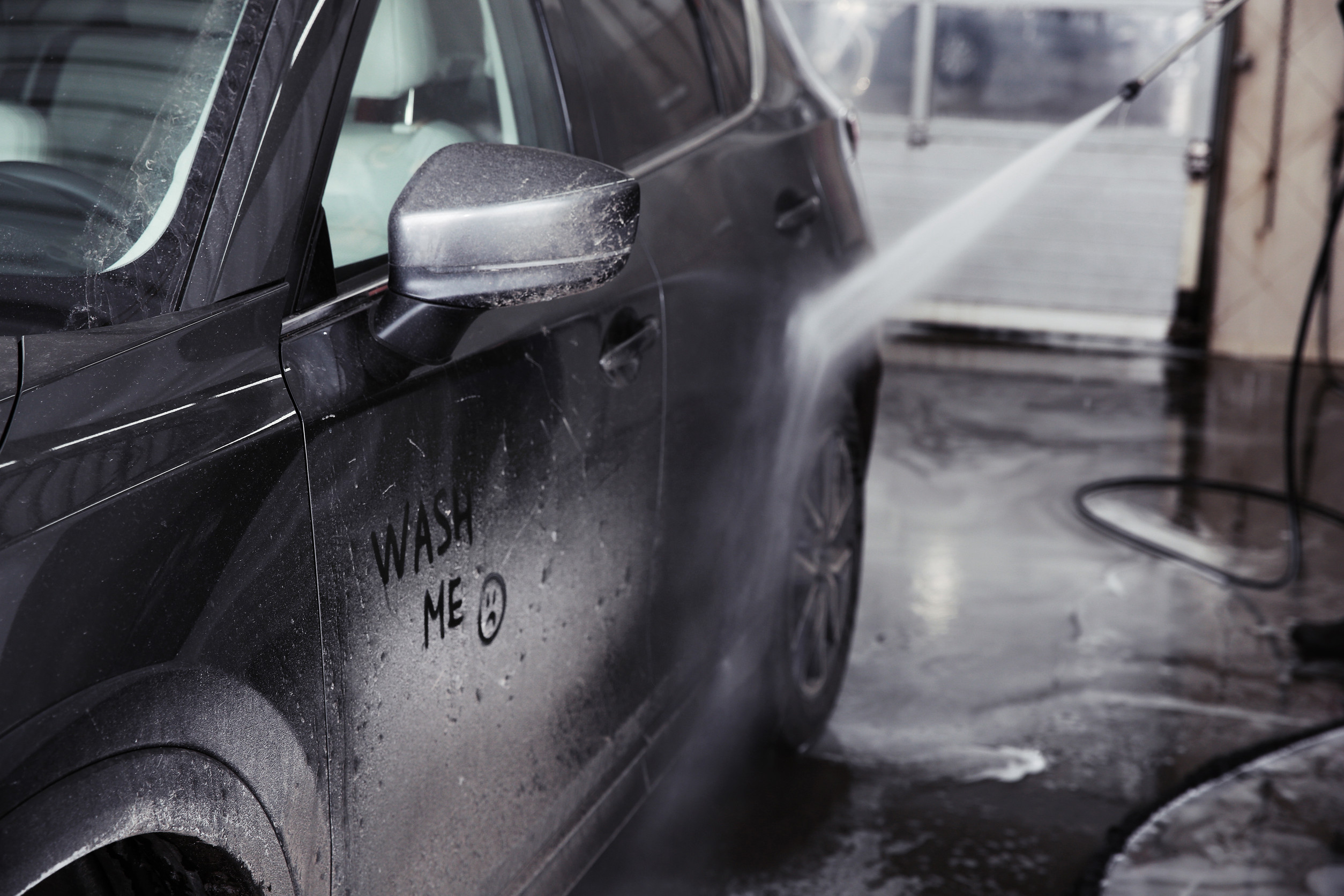
Today, the average cost of a new car is hovering around $48,000. That’s a massive amount of money to lay down on a single purchase. Most people want to be able to recover some of their initial cost when they trade their vehicle in or sell it on the private market. As a former mechanic, I can tell you that there are a lot of things drivers do to their cars that really hurt their resale value in the long run though. Make sure you aren’t making these eight mistakes.
1. Ignoring Regular Car Washes
Skipping car washes might seem harmless, but dirt, road salt, and bird droppings slowly eat away at paint. Over time, this leads to rust, fading, and damage that lowers resale value. Buyers often judge a car’s overall condition by its exterior, so neglecting cleaning creates a bad first impression. A $15 wash today can save thousands in depreciation later. Keeping the paint fresh preserves both looks and long-term value.
2. Delaying Oil Changes
One of the simplest but most damaging mistakes is stretching out oil change intervals. Old oil thickens, loses lubrication properties, and puts extra strain on the engine. Even if the car seems to run fine, internal wear adds up silently. Buyers are wary of cars without documented oil changes because it signals neglect. Sticking to the manufacturer’s schedule is one of the cheapest ways to protect value.
3. Parking in the Sun Daily
Leaving your car exposed to the sun every day accelerates paint fading and interior cracking. Dashboards, leather, and plastics can dry out and warp, making the cabin look years older than it is. Faded paint lowers curb appeal and makes buyers assume the car was poorly cared for. A simple sunshade or using a garage when possible prevents these issues. Protecting your car from UV damage is a subtle but powerful value saver.
4. Smoking Inside the Car
Cigarette smoke clings to fabric, plastics, and ventilation systems in ways that are nearly impossible to remove. Even if the driver becomes “nose-blind,” buyers pick up on it immediately. The smell alone can reduce a car’s value by hundreds or even thousands of dollars. Smoke also stains upholstery and ceiling fabric, making the car look worn. Avoiding this habit protects both health and resale potential.
5. Neglecting Tire Maintenance
Driving on underinflated or worn tires not only affects safety but also diminishes value. Uneven tire wear suggests suspension or alignment problems to buyers, even if the issues don’t exist. Replacing tires right before a sale can be costly and cut into profits. Regularly checking air pressure and rotating tires extends their life and shows responsible ownership. Well-kept tires reflect well on the entire vehicle.
6. Skipping Minor Repairs
A cracked taillight, chipped windshield, or broken trim piece may seem like small issues, but they create a picture of neglect. Buyers often assume that if small repairs were ignored, bigger maintenance tasks were skipped as well. These cosmetic flaws reduce perceived value far beyond the cost of repair. Fixing small problems as they occur prevents them from snowballing into larger problems. Attention to detail pays off when it’s time to sell.
7. Eating and Drinking in the Car
Crumbs in the seats, stains on the upholstery, and sticky cupholders signal poor upkeep. Even light spills can lead to lingering odors or mold growth under carpets. Buyers equate a messy interior with careless ownership, even if the car runs perfectly. Regular vacuuming and a no-food rule help preserve a like-new cabin feel. Clean interiors always fetch stronger offers.
8. Forgetting Service Records
Even if you’ve done all the right maintenance, failing to keep receipts and records undermines your car’s value. Buyers want proof that oil changes, tire rotations, and major services were performed on schedule. Without paperwork, they may assume the car was neglected. Organized records inspire confidence and justify higher asking prices. A folder of service history can add as much value as a fresh detailing job.
Small Habits, Big Impact on Value
The car mistakes that erode value often seem trivial until it’s time to sell. Neglecting maintenance, exposing the vehicle to harsh conditions, or skipping records chips away at resale value slowly but surely. Protecting your investment means treating small habits with the same importance as major repairs. By paying attention now, you’ll enjoy a smoother sale and more money in your pocket later. Think of it as protecting your car’s reputation and its resale value.
Which of these car mistakes do you think most owners overlook? Share your thoughts in the comments!
What to Read Next…
- 10 Car Dealership Tactics That Quietly Destroy Your Trade-In Value
- I’m a Mechanic: These 3 Used Cars Aren’t Worth It (Here’s What I’d Drive Instead)
- These 10 Common Mistakes Are Ruining Your Car’s Interior Right Now
- 3 Mistakes You’re Making With Your Car That Could Be Costing You
- 10 Crucial Things to Check Right After You Buy a Used Car
The post 8 Everyday Car Mistakes That Erode Value Without You Noticing appeared first on Clever Dude Personal Finance & Money.







